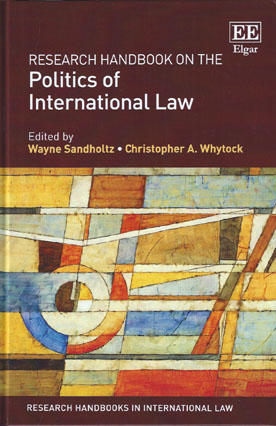
What is the relationship between politics and international law? Rather than exploring this question through the lens of the dominant paradigms of international relations theory - realism, liberalism, and constructivism - this book proposes a different approach.
Based on the premise that the relationship varies depending on the sites where it unfolds, and inspired by comparative politics and socio-legal studies, the book develops a novel framework for comparative analysis of politics and international law at different stages of governance and in different governance systems. Expert contributors apply this analytical framework to diverse fields of law and politics.
Part I examines the problems of compliance, effectiveness and the domestic enforcement of international law, and legal institutions including domestic and international courts, national legislatures and regime complexes. Part II covers substantive fields of governance such as global financial regulation, environmental standards, trade, intellectual property and human rights.
The final chapters in this Part tackle emerging yet critical issues in international law, including terrorism, cyber conflict and Internet regulation. Together, the chapters represent a significant step forward in the comparative analysis of politics and international law.
This Research Handbook will be essential reading for students and academics in political science and law alike.